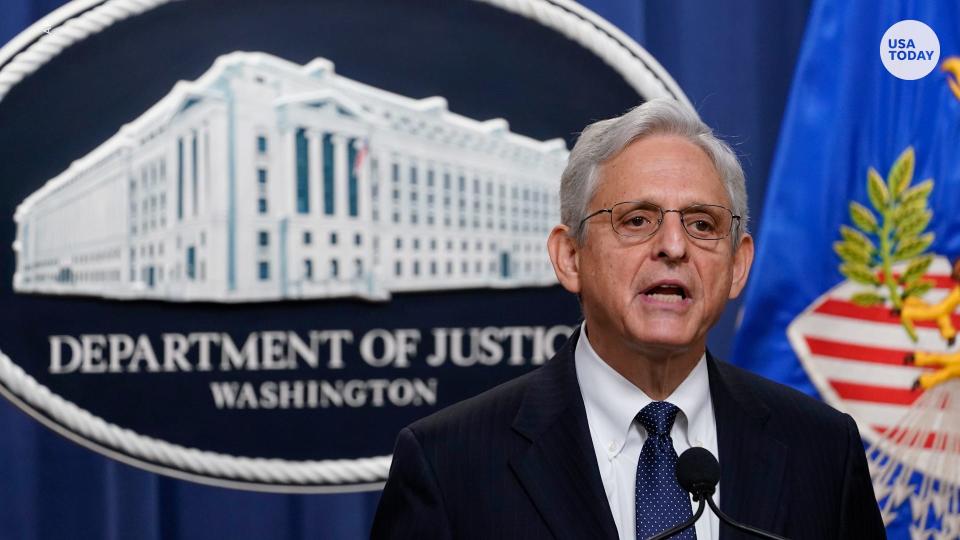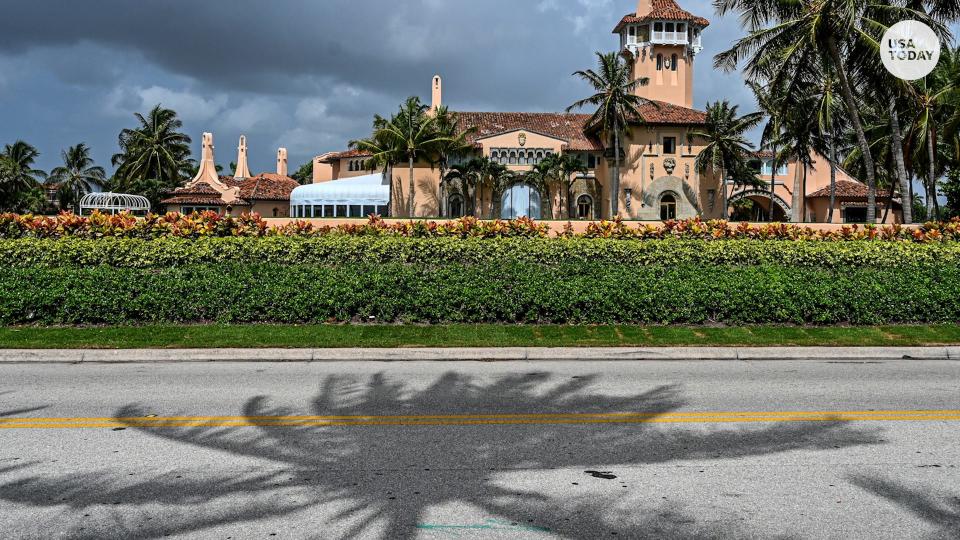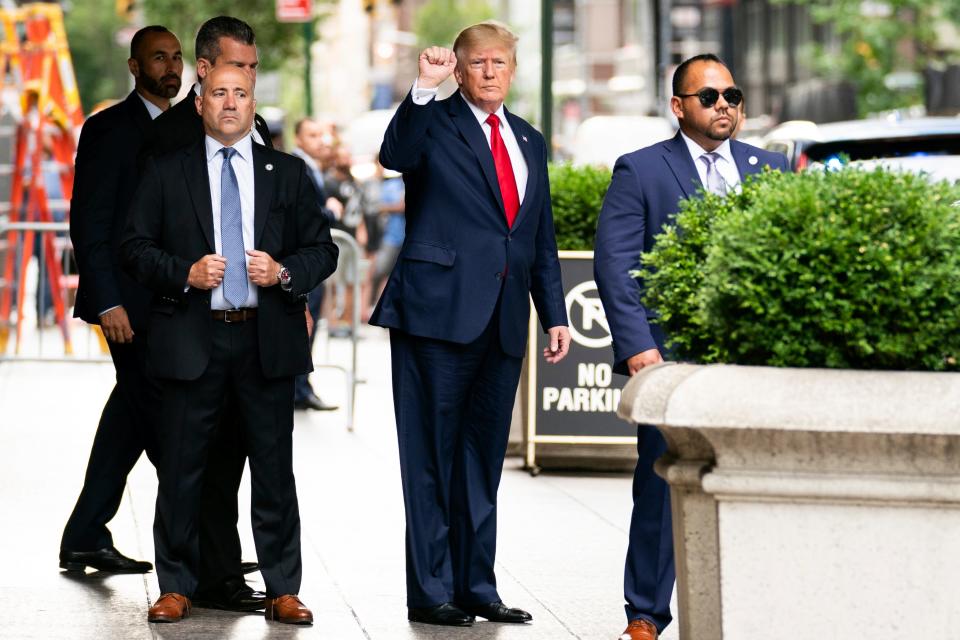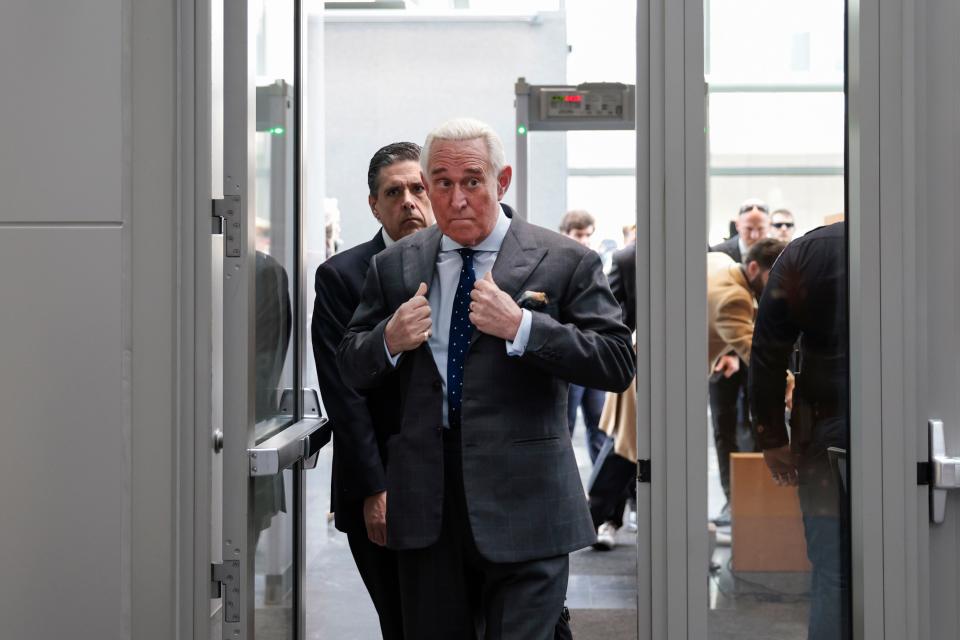FBI seized top secret documents at Trump's Mar-a-Lago, but gave no clear hints on what they are
WASHINGTON – The government says former President Donald Trump stored caches of "secret" and "top secret" documents at his Florida resort but provided no clear hints of what they might contain.
Instead of details or examples, the search warrant unsealed Friday contained line items referring to the seizure of "miscellaneous secret documents," "miscellaneous top secret documents," and "miscellaneous confidential documents."
Whatever their contents, however, they are now the basis of an investigation that possibly involves criminal laws prohibiting improper removal of classified documents, obstruction of justice and possible violations of the the Espionage Act.
The warrant said the Justice Department planned to seize "all physical documents and records constituting evidence, contraband, fruits of crime, or other items illegally possessed."
More: The search warrant for Trump's Mar-a-Lago home has been released. Here's what it says.
Live updates: DOJ search warrant shows Trump being probed in connection with espionage statutes

"There is good reason that the document lacks detail," said Bruce Udolf, a former federal prosecutor who was an associate independent counsel in the Clinton Whitewater investigation in the early 1990s. "To release the contents of the documents would compound the damage that has already been done."
Even the sparse description of the documents listed in the warrant, Udolf said, suggest a "shocking collection" of material, including one cache designated as TS/SCI, or top secret, sensitive compartmented information, one of the most restricted government classifications.
The classification rules require that government officials, including the president, should review especially sensitive information in established secured areas known as SCIFs – Sensitive Compartmented Information Facilities.
And there is no indication that such a facility existed at Mar-a-Lago after Trump's term in office ended.

"The DOJ seems to be investigating an ex-president for knowingly endangering the safety of the nation by refusing to return documents that could do real damage to national security, even after being told to do so," said Patrick Cotter, a former federal prosecutors.
"It is the stuff of cheap political thrillers of the more fantastical variety – until today."
'Top Secret' documents at Mar-a-Lago
Trump and his aides say federal investigators have no evidence he committed wrongdoing, that his documents were declassified and that the Justice Department is engaged in a vendetta.
"They could have had it anytime they wanted without playing politics," Trump said in a written statement Friday.

Yet, the question remains why Trump continued to keep at least 11 caches of classified documents, included in the 20 boxes recovered at Mar-a-Lago.
The warrant did not indicate where the material was recovered, but it revealed that agents searched a location known as the "45 Office," as well as "all storage rooms, and all other rooms or areas within the (Mar-a-Lago) premises used or available to be used” by Trump and his staff.
Other recovered items did not appear to implicate a government classification but were tantalizing nonetheless. They included a 2020 grant of clemency to longtime Trump adviser Roger Stone and a file identified only as pertaining to the "President of France."

There also were other more innocuous-looking seizures: two binders of undesignated photographs and a “handwritten note.”
What makes information 'classified'?: Who has the power to declassify it? Answers here.
The Espionage Act
A note of caution from national security specialists: The fact that Trump is being investigated under the Espionage Act doesn't mean that investigators believe he is a spy. It is more likely, attorneys said, that the inquiry is focused on the possible careless handing of classified information, which would make it easier to be accessed by spies, attorneys said.
"It is a very broad statute that criminalizes the misuse of national defense information," said defense attorney Renato Marrioti, a former federal prosecutor. "Violating the act does not necessarily mean that the person has engaged in espionage."
What is the Espionage Act?: What to know, from the Sedition Act amendment to declassified documents
This article originally appeared on USA TODAY: Top secret documents seized at Donald Trump's Mar-a-Lago estate

